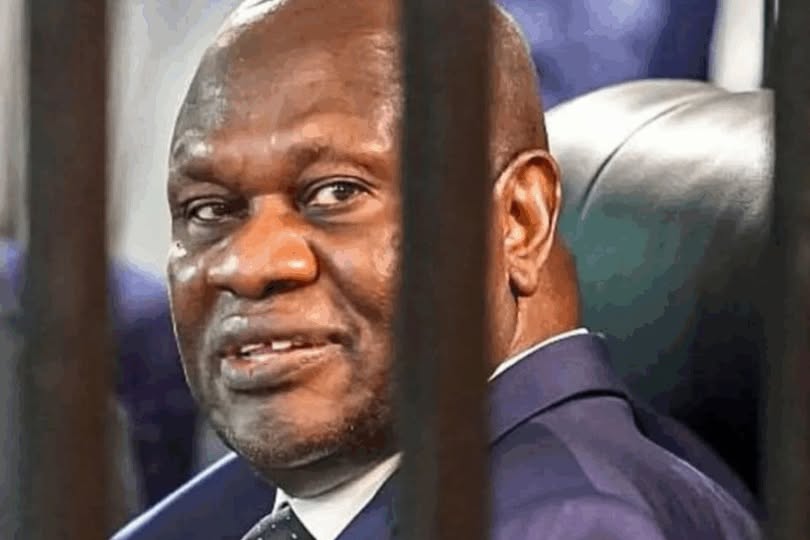
The courtroom inside Freedom Hall fell into tense silence as the defense team for First Vice President Dr. Riek Machar began cross-examining the state’s lead investigator, Maj. Gen. Basilio Thomas Wani.
What followed in the sixteenth session of the Nasir Incident trial unfolded as a day of tense exchanges and probing questions that put the investigation under the microscope.
The ongoing special court hearings stem from the March 2025 attack on an SSPDF garrison in Nasir, an incident the state blames on forces aligned with Machar’s SPLM/A-IO.
Eight high-profile figures, including Machar, Petroleum Minister Puot Kang Chol, MP Gatwech Lam Puoch, and SPLA-IO Deputy Chief of Defense Lt. Gen. Gabriel Duop Lam, are facing charges ranging from incitement to treason.
But Friday’s session turned the spotlight squarely on the investigation itself.
The defense team, composed of senior legal counsels Deng John Deng from Machar’s political bloc, launched a precise attack on what they called the “illegal foundation” of the trial.
They began by questioning how Dr. Machar a sitting First Vice President was detained without his immunity being lifted by the Transitional National Legislative Assembly (TNLA), as required by law.
Documents presented in court showed that the Internal Security Bureau (ISB) had written to President Salva Kiir Mayardit on March 26, 2025, seeking permission to detain Machar.
The President reportedly approved the request the same day without any parliamentary authorization.
“This letter alone proves that the arrest was unconstitutional,” the defense declared. “No one, not even the President, can lift the immunity of a sitting Vice President without due parliamentary process.”
They extended the argument to the arrests of Puot Kang, Hon. Gatwech Lam, and Lt. Gen. Duop Lam, all of whom were taken into custody by the National Security Service (NSS) without approvals from their respective institutions.
The real turning point came when the defense questioned Maj. Gen. Basilio about the legality of the investigation committee he led.
“Did you and your team take the official oath before beginning your work?” one defense lawyer asked.
The investigator hesitated, then answered softly: “No.”
The courtroom stirred. The admission meant that the entire investigation, the foundation of the prosecution’s case had proceeded without legal standing.
The defense seized on the moment: “Then everything you produced is procedurally invalid. You cannot build a lawful prosecution on an unlawful investigation.”
As questioning continued, the defense pressed Basilio on whether any direct evidence linked Dr. Machar or his co-accused to the alleged mastermind of the Nasir attack, Tor Gile Thoan, a White Army commander who died in the assault.
Basilio admitted: “We have no evidence connecting them.”
Gasps rippled across the courtroom. For the first time since the trial began, the prosecution’s central narrative that Machar ordered or coordinated the attack, appeared to crumble.
Attention then shifted to Puot Kang Chol’s much-cited Radio Miraya interview, which the prosecution claimed had “misled the public” about the incident.
Under cross-examination, Basilio acknowledged that the minister had not made a public declaration, but rather answered a journalist’s question live on air, clarifying that the troops moving toward Nasir were SPLM-IG forces, not unified forces.
That testimony aligned with the defense’s long-held position that Puot Kang was engaging in media discourse, not military incitement.
After nearly four hours of exchanges, presiding judge James Alala Deng adjourned the session to Monday, November 3, 2025.
The defense is expected to call witnesses and seek further clarification on the legality of the arrests.
That is Dr. Machar and his co-accused’s defense cornered the lead investigator, and the credibility of South Sudan’s most watched trial now hangs in the balance.

